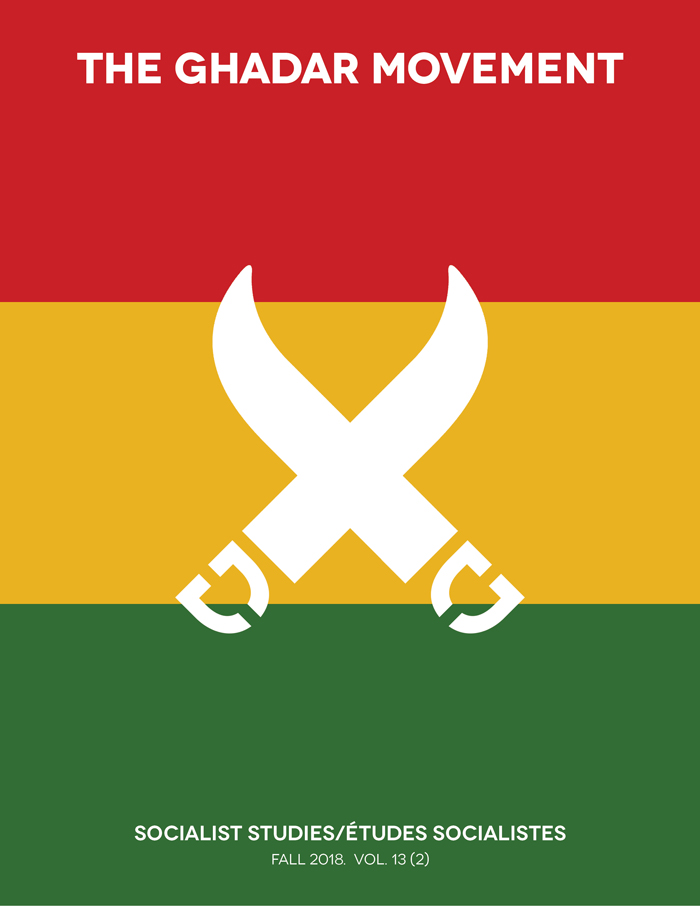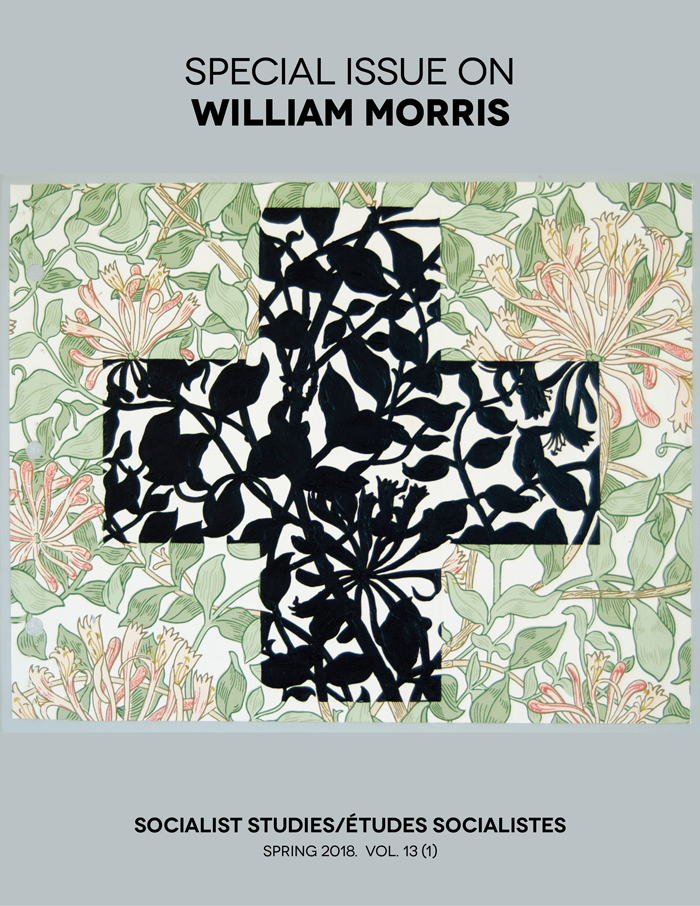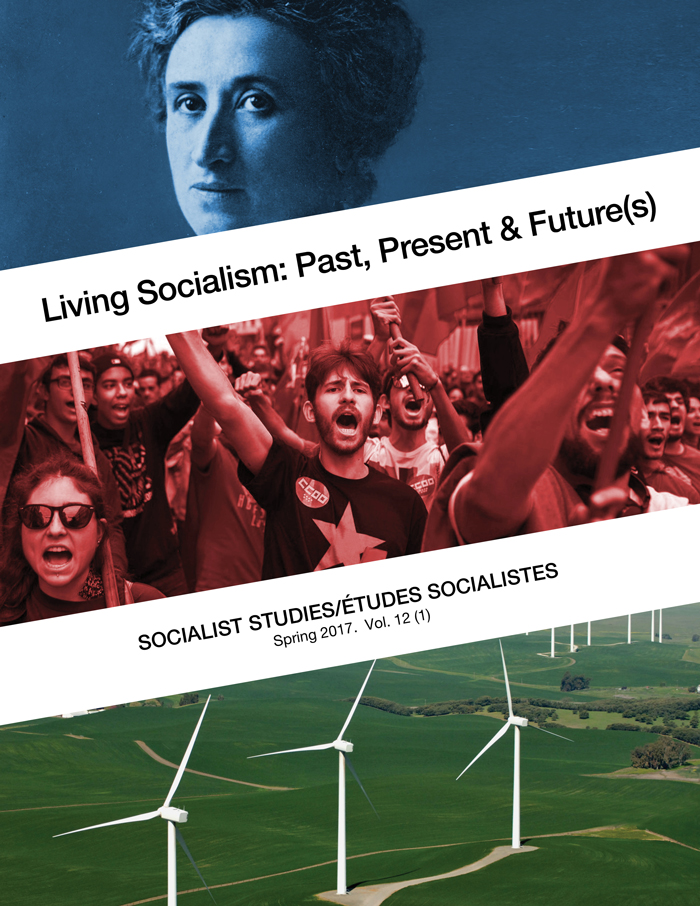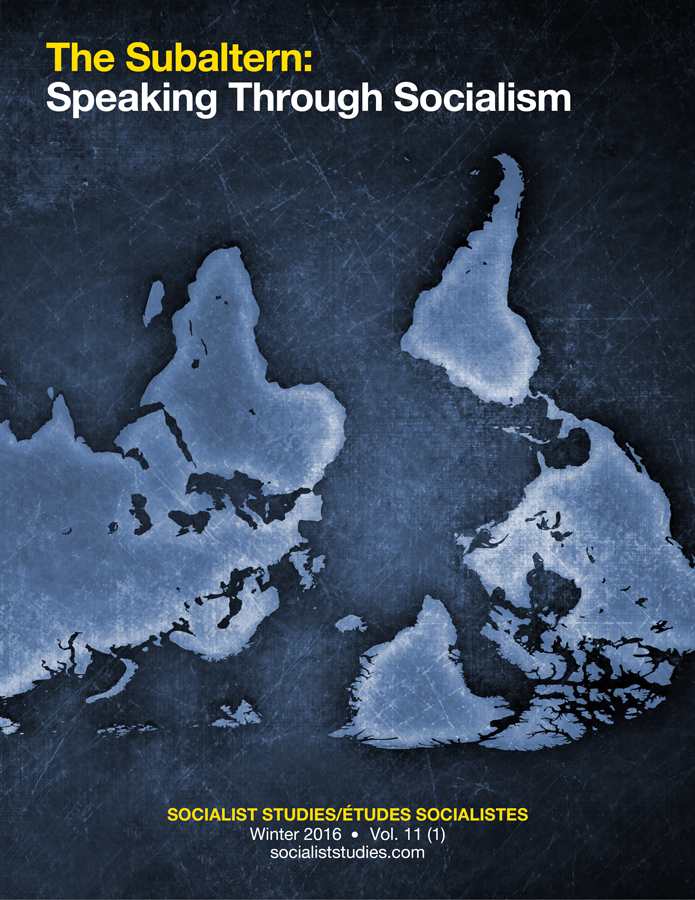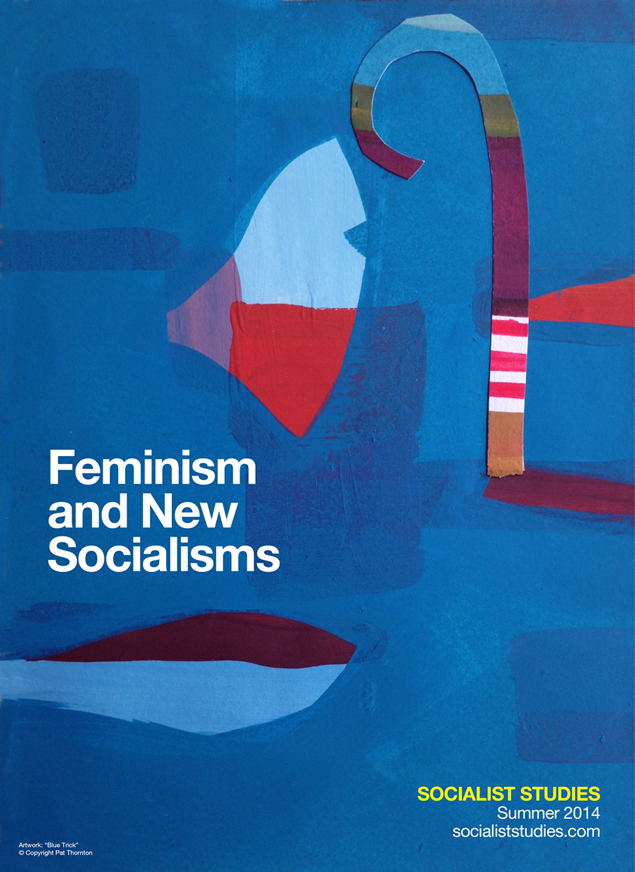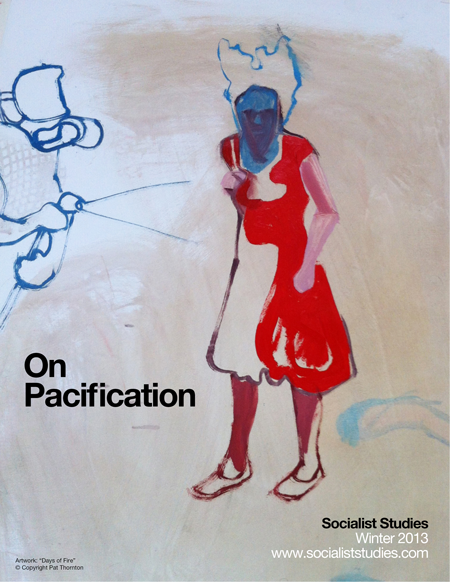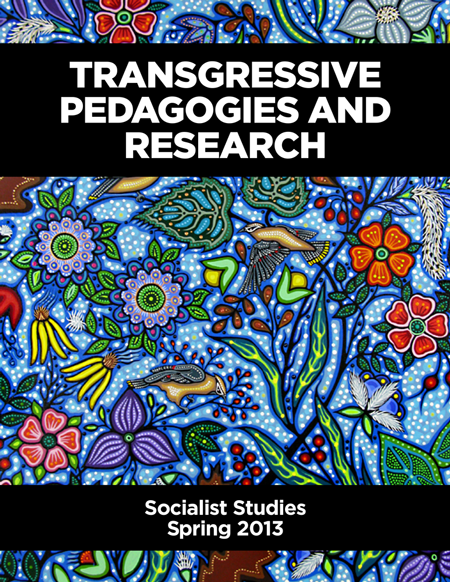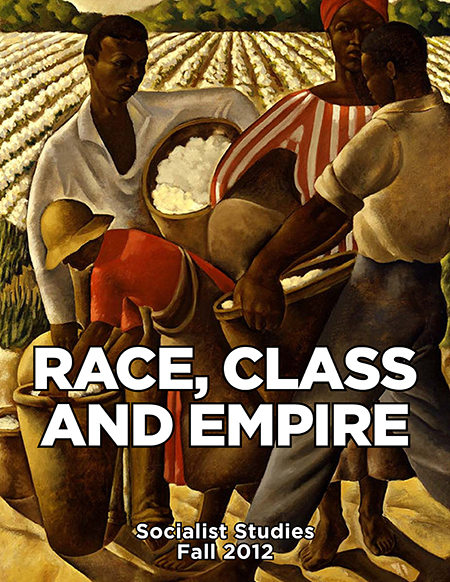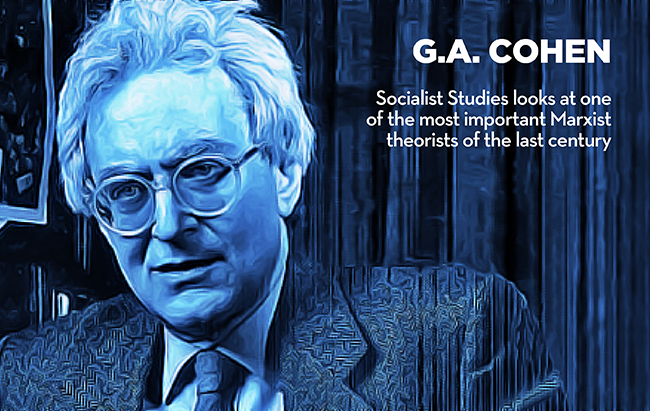Archives
-
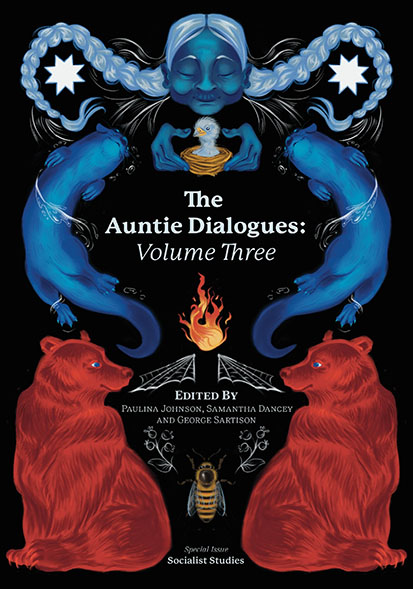
Special Issue: "The Auntie Dialogues" from Dr. Paulina R. Johnson and "The Auntie Is In" podcast, Volume III
Vol. 19 No. 2 (2025)Last year, Socialist Studies was honored to provide the complete transcript of Dr. Paulina Johnson’s ground-breaking “The Auntie is In” podcast (volume II). We are equally thrilled to release the complete transcript for Volume III on International Aunties’ Day (July 26, 2025). Dr. Johnson’s work invites the listener/reader to become part of the conversation that holds dear the place of “the Auntie” while sharing ancestral knowledge and stories of the Nêhiyawak.
Readers, you are invited to be guided by “the Auntie” —learn, laugh, and reflect.
-
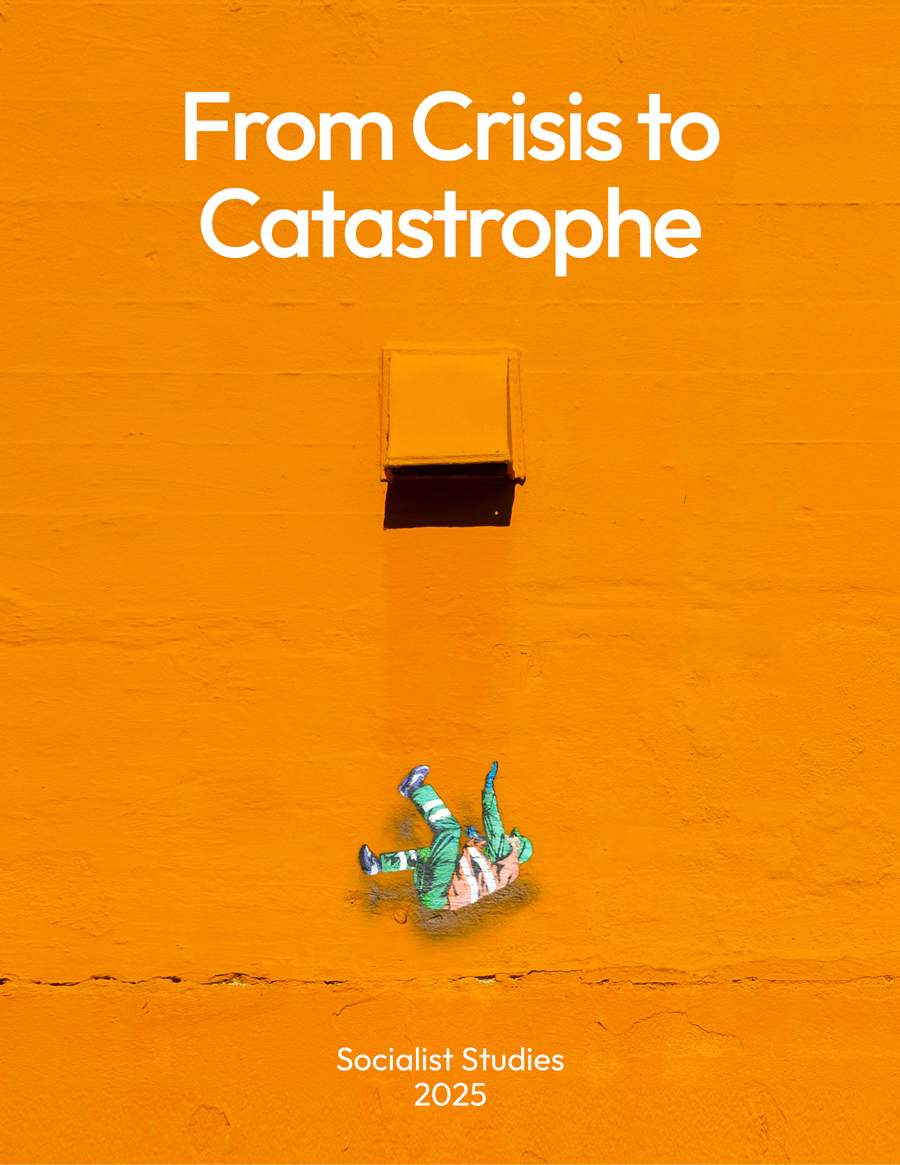
From Crisis to Catastrophe?
Vol. 19 No. 1 (2025)We publish on a rolling basis. As articles are received and approved for publication (double-blind peer review for scholarly articles and editorial approval for others), they will be released on the Journal website. At the end of each calendar year, we will gather all the content together in a single volume.
All content is Open Access, there are no publication fees and we encourage diverse approaches, ideas, and topics!
-
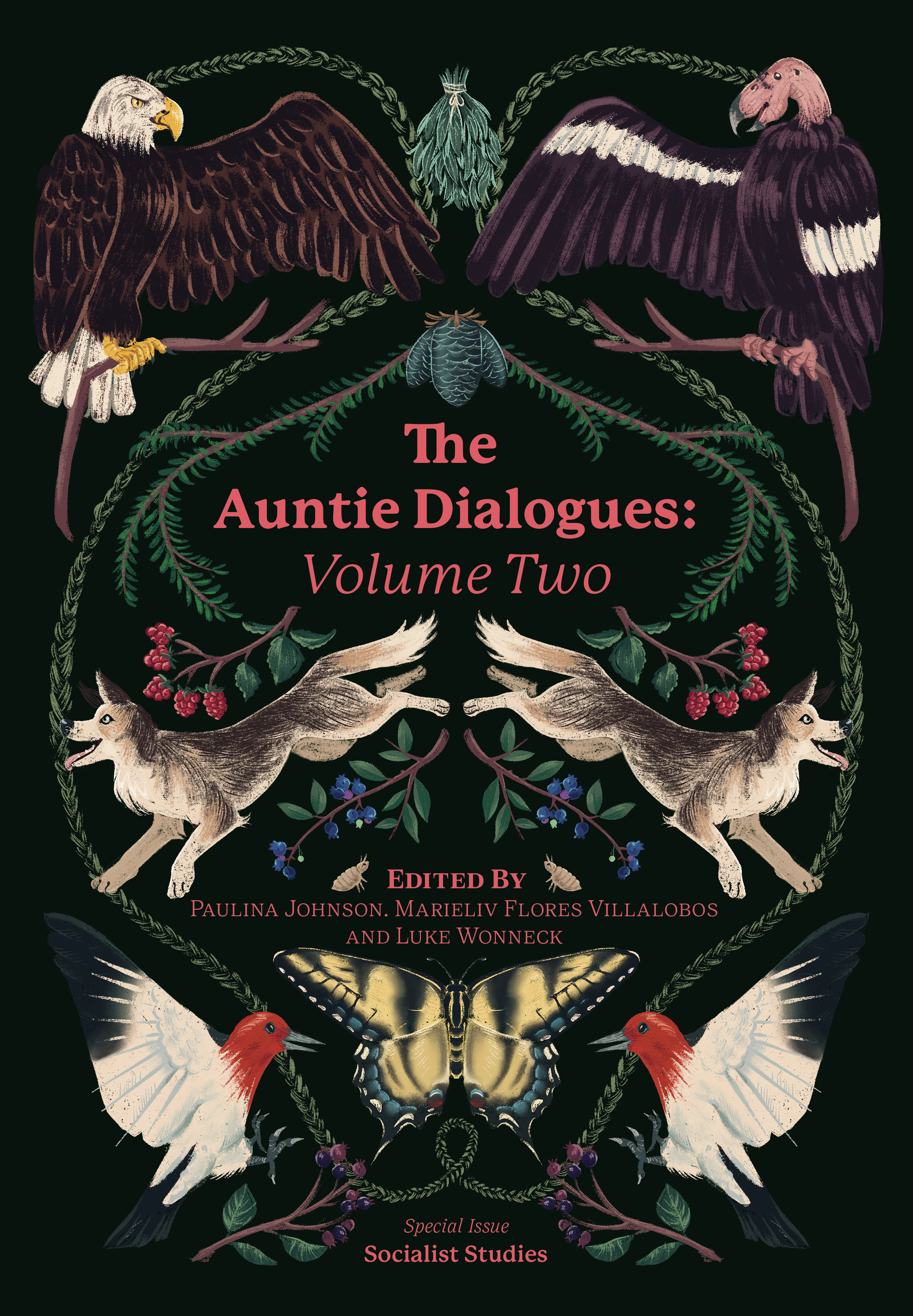
Special Issue: "The Auntie Dialogues" from Dr. Paulina R. Johnson and "The Auntie Is In" podcast, Volume II
Vol. 18 No. 1 (2024)Last Fall, Socialist Studies was honored to provide the complete transcript of Dr. Paulina Johnson’s ground-breaking “The Auntie is In” podcast (volume I). Dr. Johnson’s work invites the listener/reader to become part of the conversation that holds dear the place of “the Auntie” while sharing ancestral knowledge and stories of the Nêhiyawak. In Volume II, Dr. Johnson once again invites us to join her in a series of episodes that interweave Indigenous feminism and Dr. Johnson’s community, family, scholarship and life experiences and learning. These transcripts invite Môniyāwak (Settler) into a conversation that is rich in content and meaning and essential to building bonds of reciprocity, solidarity, and new ways of “knowing”. Readers are invited to “dip” into the chapters in any order that makes sense to them. As always, be guided by “the Auntie” —learn, laugh, and reflect.
DOI: https://doi.org/10.18740/SS27365 -
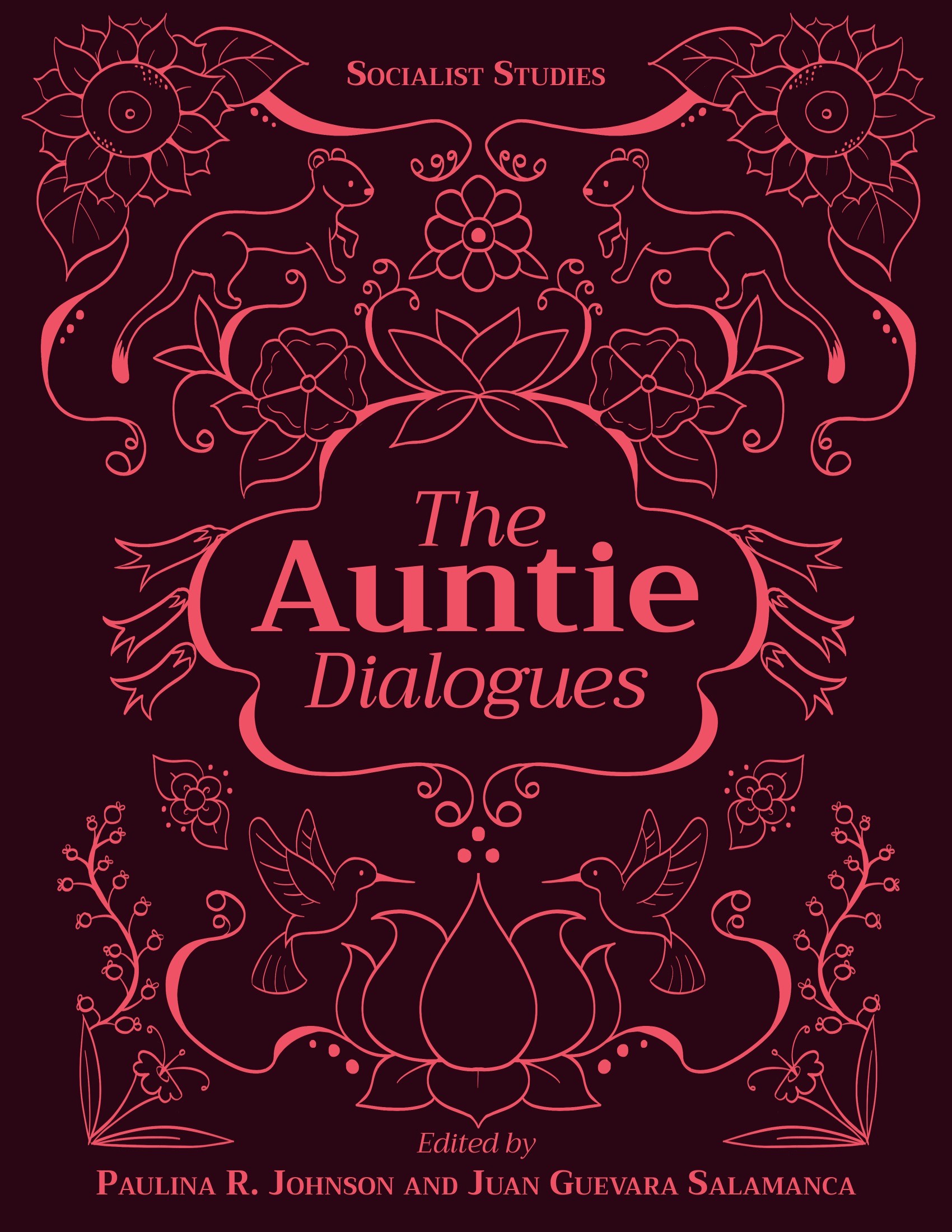
Special Issue: "The Auntie Dialogues" from Dr. Paulina R. Johnson and "The Auntie Is In" podcast
Vol. 17 No. 1 (2023)This is for the aunties who were silenced by settler colonialism, may you live on through the voices of us who stand on your shoulders and share your wholehearted laughs.
-
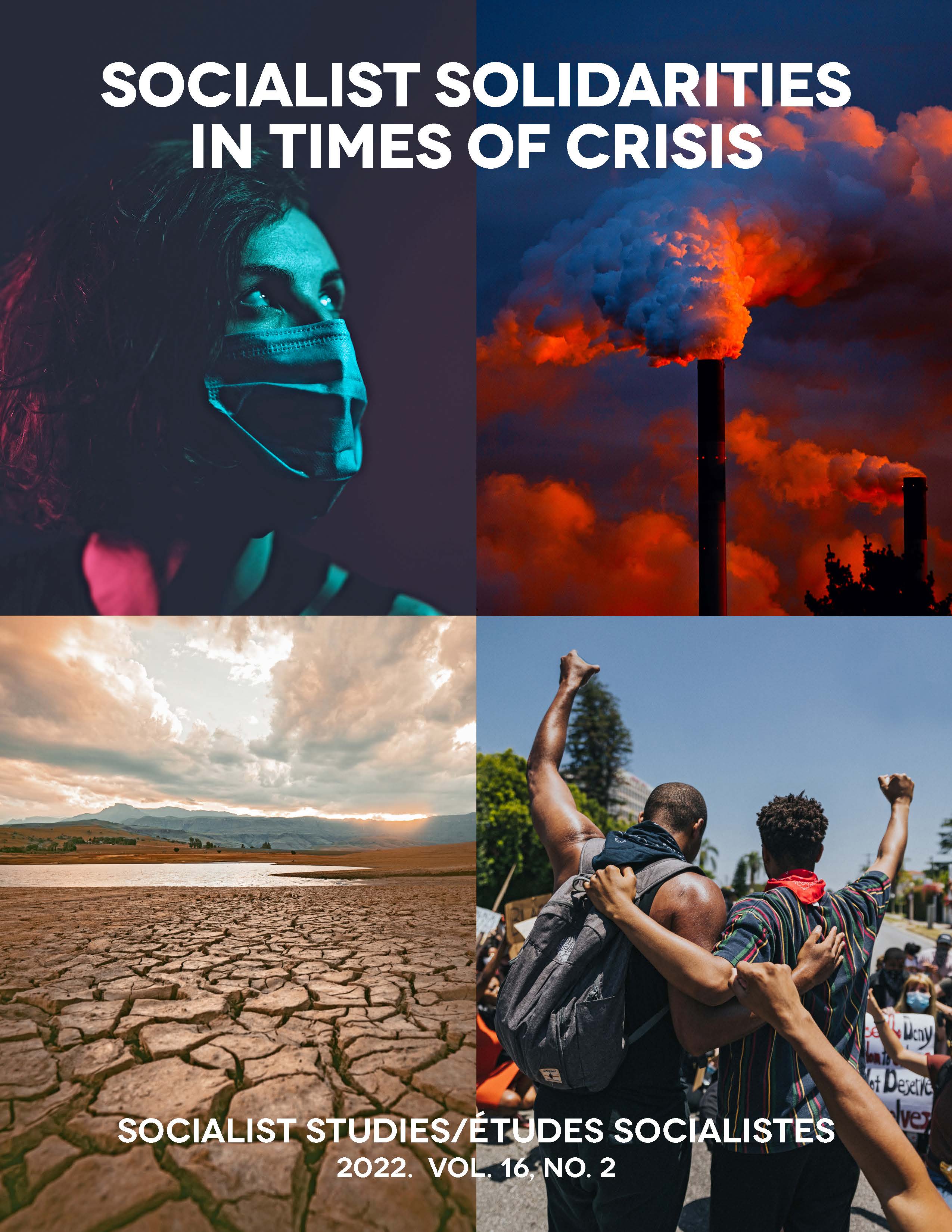
Socialist Solidarities in Times of Crisis
Vol. 16 No. 1 (2022)We publish on a rolling basis. As articles are received and approved for publication (double-blind peer review for scholarly articles and editorial approval for others), they will be released on the Journal website. At the end of each calendar year, we will gather all the content together in a single volume.
All content is Open Access, there are no publication fees and we encourage diverse approaches, ideas, and topics!
-
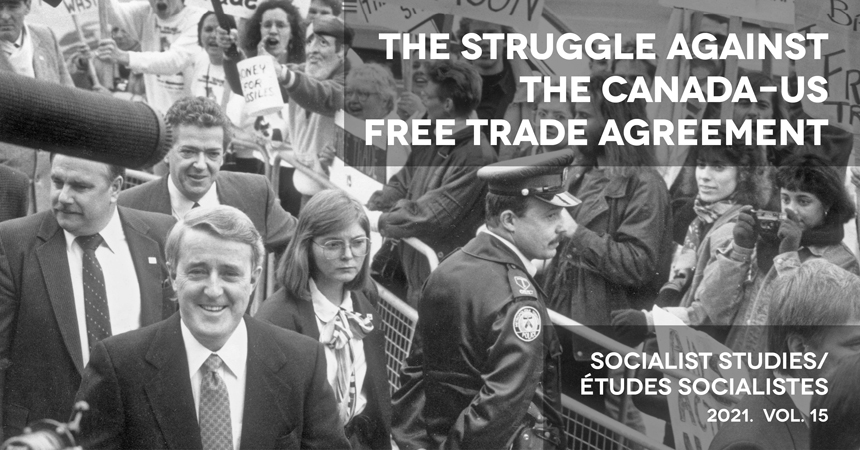
Special Issue: Reflections on the Struggle Against the Canada-US Free Trade Agreement, 30 Years Later
Vol. 15 No. 1 (2021)In Memory of Mel Watkins (1932-2020)
The implementation of the Canada-US Free Trade Agreement (CUSFTA) in January 1989 marked a decisive moment in the rise of neoliberalism as a political project in Canada. While the left, and socialist political economists in particular, played a central role in galvanizing the agreement and contributed in no small part to the demise of the Conservative government in 1992, the free trade agenda continued to move forward through the 1990s. This Special Issue revists the history of struggles against free trade in Canada with two aims in mind: first to remember the coalitions through which opposition was organized, the mobiliziation of socialist critiques by activists and intellectuals, and the key events leading up to the adoption of the agreement. Second, drawing from this history to make sense of how things have changed over the past 30 years, as right-wing nationalists have increasingly taken the lead in opposing free trade, while noeliberals have sought to rebrand the project as "progressive". How can those on the left effectively confront the project of free trade today while at the same time challenging both far-right nationalism and neoliberal globalization?
-
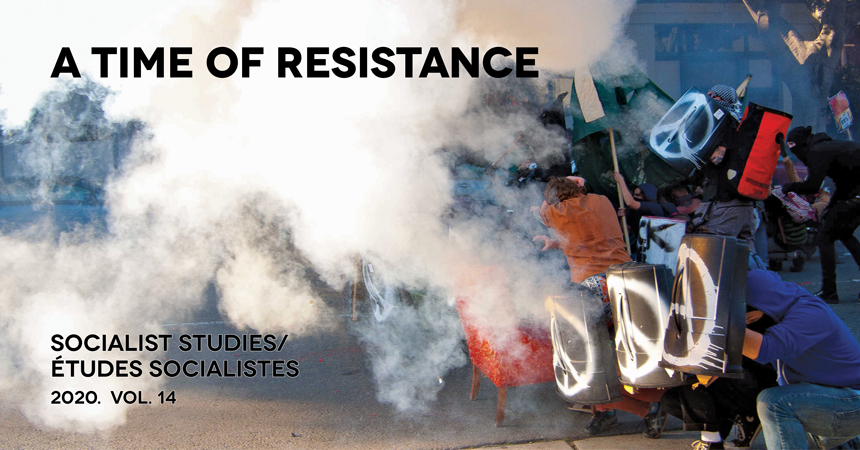
A Time of Resistance
Vol. 14 No. 1 (2020)The Journal of Socialist Studies is pleased to announce that we are now publishing articles on a “rolling basis”. What does this mean? First and foremost, it means that we will be able to publish articles in a more timely fashion and that critical research and analysis will be available to our community faster and in more “digestible” bits. As articles are received and approved for publication (double-blind peer review for scholarly articles and editorial approval for others), they will be released on the Journal website. At the end of each calendar year, we will gather all the content together in a single volume.
Cover photo by Glenn Halog -
Double Issue: Organizing for Austerity
Guest edited by Bryan Evans and Ian Hussey, features eleven articles, an interview with David McNally, review essays, and book reviews. -
Special Section: Twenty Years after Kanehsatà:ke: Reflections, Responses, Analyses
A special section on the legacy of the 'Oka Crisis' twenty years later.

